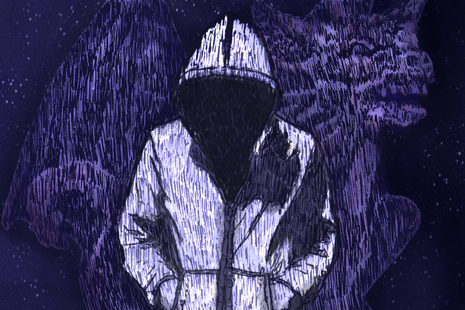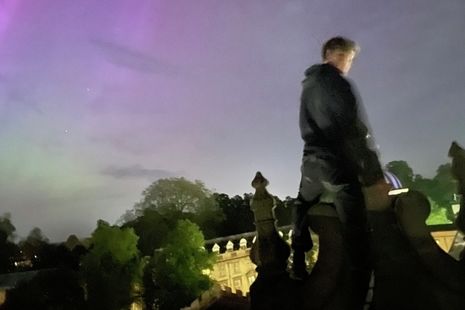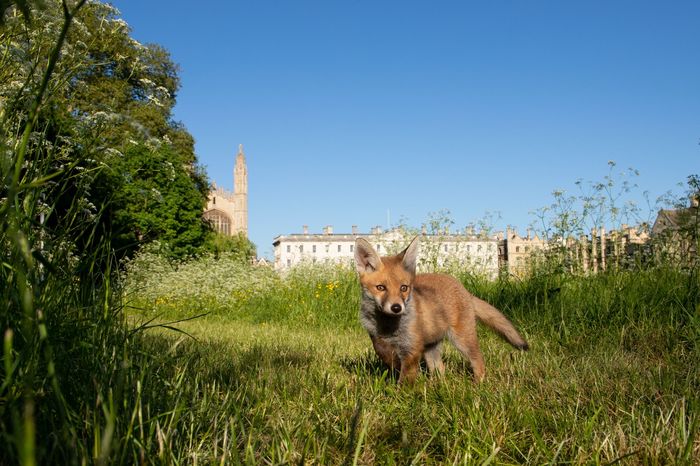‘I broke into five May Balls in five days!’: a night climber’s guide to Cambridge
Dexter Twycross investigates the living tradition of night climbing before trying his own hand at scaling Cambridge’s rooftops

“So, how do you do it?” It’s Week One of Easter term and we’re sitting on either side of a table at Aromi. Rob Ground is the student opposite me. Relatively tall, yet unassuming, Rob is dressed in a blue quarter-zip and black jacket. His tone is friendly, and he speaks in an enthusiastic manner, despite admitting that he’s a bit of a “college recluse”. Last year, Rob and his friends successfully broke into five May Balls on consecutive nights. Infiltrating balls at Emmanuel College, Trinity College, St John’s College, Pembroke College, and Jesus College, his group had one of the most cost-effective May Weeks possible.
“Really, what you need is ingenuity,” comments Rob. “On any given night you’ll spot 20-30 people milling around outside trying to get in. Security will be watching them. It’s about whoever can be most inventive.”
From what I gather, “inventive” is an apt description. Rob explains how May Ball predrinks became arts and crafts sessions, as his group created their own wristbands based on photos posted about the event. He tells stories of scrambling through windows into Emmanuel House, descending drainpipes into the King’s Affair, or trying to jump a low wall into St Catharine’s College. Many encounters are humorous in nature, with students “lining up like penguins” to take advantage of specific openings or coming face-to-face with college security teams on the other side of a wall. The way Rob describes it makes it sound like a game to be won, far more than anything else.
“It’s about whoever can be most inventive”
Joviality is paramount in night climbing’s culture. Published by the pseudonymous ‘Whipplesnaith’ in 1937, the classic guidebook, The Night Climbers of Cambridge, is filled with comedic accounts of student “adventures” and “exploits” with the consequences often presented as minimal. Its writers claim that both police and younger dons are “friends” to the thrill-seeker, often having a history of roof-climbing themselves. While this may be an artefact of a bygone era, Christmas trees and Santa hats decking Cambridge’s spires would suggest certain humour has continued since the glory days of the 1930’s.
That’s not to say that night climbing is without consequence. Although Whipplesnaith could have you believing otherwise, possible charges include trespassing (a civil offence), property damage, or being a public nuisance. In 2022, students from St Catharine’s were arrested for ascending scaffolding on Trumpington Street, but it’s unclear if they received any charges.
Additionally, college bylaws typically forbid any sort of climbing, except in the case of emergency. Two students were rusticated in 1937 for climbing King’s College Chapel, while another pair were “sent down” in the early 1960s for scaling the Senate House. It’s worth noting, however, that there isn’t much evidence of recent expulsion for exploring the rooftops. In our conversation, Rob coyly admitted to successfully hiding a piece of college chapel in his bedroom, having broken it off during a nocturnal rooftop trip.
“Stories occasionally get traded of people urinating from the heights to ‘mark their territory’”
For May Ball committees, however, night climbers are a dangerous nuisance. Corpus May Ball President, Omar Burhanuddin, asserted that night climbing was “dangerous and unacceptable”. He stated that the Ball is in association with SIA-accredited security contractors and will work with college authorities to ensure “severe disciplinary consequences” for those found guilty. He also intends to place more security in the fellows’ garden, a known weak spot in the college’s defences.
Nevertheless, I don’t get the impression that Rob is too deterred, viewing the only consequences as a “light slap on the wrist”. Nor are the dangers of climbing much deterrence to Rob. Though he assures me that he’s never been seriously injured, he did recount a story of a friend falling from St. John’s plodge when a brick broke from the top, causing the student to slice his shin open on a fast descent. Even then, Rob finds ways to make humour out of the situation: “The taxi driver to Addenbrooke’s was convinced we were on some sort of drug!” I shudder. I’m not a big fan of the risks.
Despite my apprehension, I find myself perched atop a roof just two weeks later, surveying the city skyline. Rob has agreed to take me up, along with another fresher named Dan, for his last climb before the exam period. It’s a clear, dry night – ideal weather for climbing – and the city lies illuminated with lamplight below.
Consistently, Rob stresses how easy certain routes are to climb. He describes our current location as a “training ground”, as opposed to the trickier puzzles of older colleges. In his view, it’s largely “just about confidence,” rather than any technical know-how. Unfortunately, this is easier said than done. Whilst my friend Dan starts scaling spires and meandering across ridges with ease, I hang back, declining certain gaps and bum-shuffling more than I’d like to admit. It’s not glamorous, but I think I’d rather guard my safety than show off my parkour.

Watching Rob, he’s clearly got a lot more experience than either of us. He treats the environment as his playground, sliding down slopes and using pillars as convenient stairways. The city from above is a deeply surreal view to experience, and we frequently stop to gaze out at its majesty. Familiar streets are now twisted beyond recognition. It’s easy to see how the activity is romanticised. Lone wanderers, pushing the limits of authority, witnessing the sublime view of an academic city. The old adage is also true: nobody ever looks up.
“The old adage is also true: nobody ever looks up”
As much as I agree with the fact that night climbing can feel incredibly romantic, that’s not an overriding sentiment. There’s a strong feeling of entitlement that comes from being above it all, which can be hard to shake in the moment. Common ways to descend from a college involve sneaking into students’ bedrooms through open windows, while stories occasionally get traded of people urinating from the heights to “mark their territory”. Rob jokes that he could easily pop into his Master’s Lodge to “make a cup of coffee” whenever he wants; there’s an open window next to a drainpipe, and you can scramble up to see what’s on the telly. This sentiment is only talk, but I can still sense Rob’s quiet satisfaction in knowing that it’s possible.
There is a pervading sense of bravado in the activity. Whipplesnaith’s is full of it, depicting the climber as “the man standing on the edge of the abyss”. All good explorers know that the joy of retelling an adventure comes from its embellishment. While the impression I get of Rob is that he’s largely a straight shooter, I can’t help but feel the urge is somewhat inescapable. There’s a reason, after all, that he agreed to such an article.
With May Balls closing left and right, it’s not clear that we can consider gatecrashing “fair” in any sense of the term. Free food, drink, and entertainment sound delightful, unless you’re the person paying for it.
From my own brief encounter, night climbing invokes a great deal of wonder, bringing out the beauty of the city in all its forms. I can tell from Rob’s enthusiasm for it that the pastime clearly brings him a great deal of joy, seeing a side to the city that only a rare few get to experience. I’m not sure when I’ll find myself climbing again, but I’m grateful to him for what he’s shown me.
Ultimately, I wish Rob luck with all his plans this June … but equally to any security teams attempting to catch him! Maybe it’s time for both sides to settle-in and enjoy the game.
If you, or anyone you know, has a tip-off about Cambridge’s open secrets that you’d like to see explored, send me an email at DJT71@cam.ac.uk.
Names have been changed for privacy reasons.
 News / Judge Business School advisor resigns over Epstein and Andrew links18 February 2026
News / Judge Business School advisor resigns over Epstein and Andrew links18 February 2026 News / Hundreds of Cambridge academics demand vote on fate of vet course20 February 2026
News / Hundreds of Cambridge academics demand vote on fate of vet course20 February 2026 News / Petition demands University reverse decision on vegan menu20 February 2026
News / Petition demands University reverse decision on vegan menu20 February 2026 News / CUCA members attend Reform rally in London20 February 2026
News / CUCA members attend Reform rally in London20 February 2026 News / Gov grants £36m to Cambridge supercomputer17 February 2026
News / Gov grants £36m to Cambridge supercomputer17 February 2026










